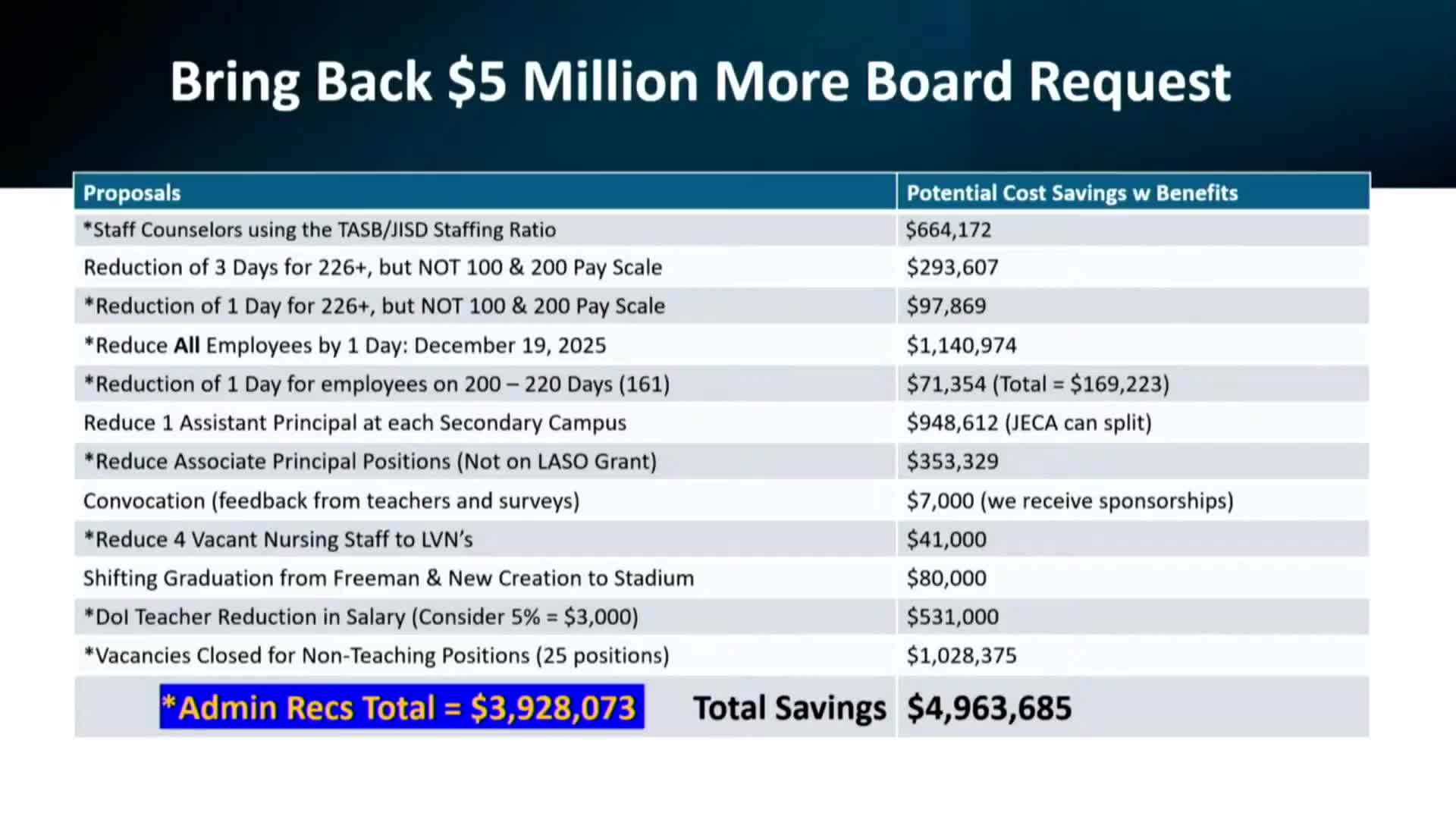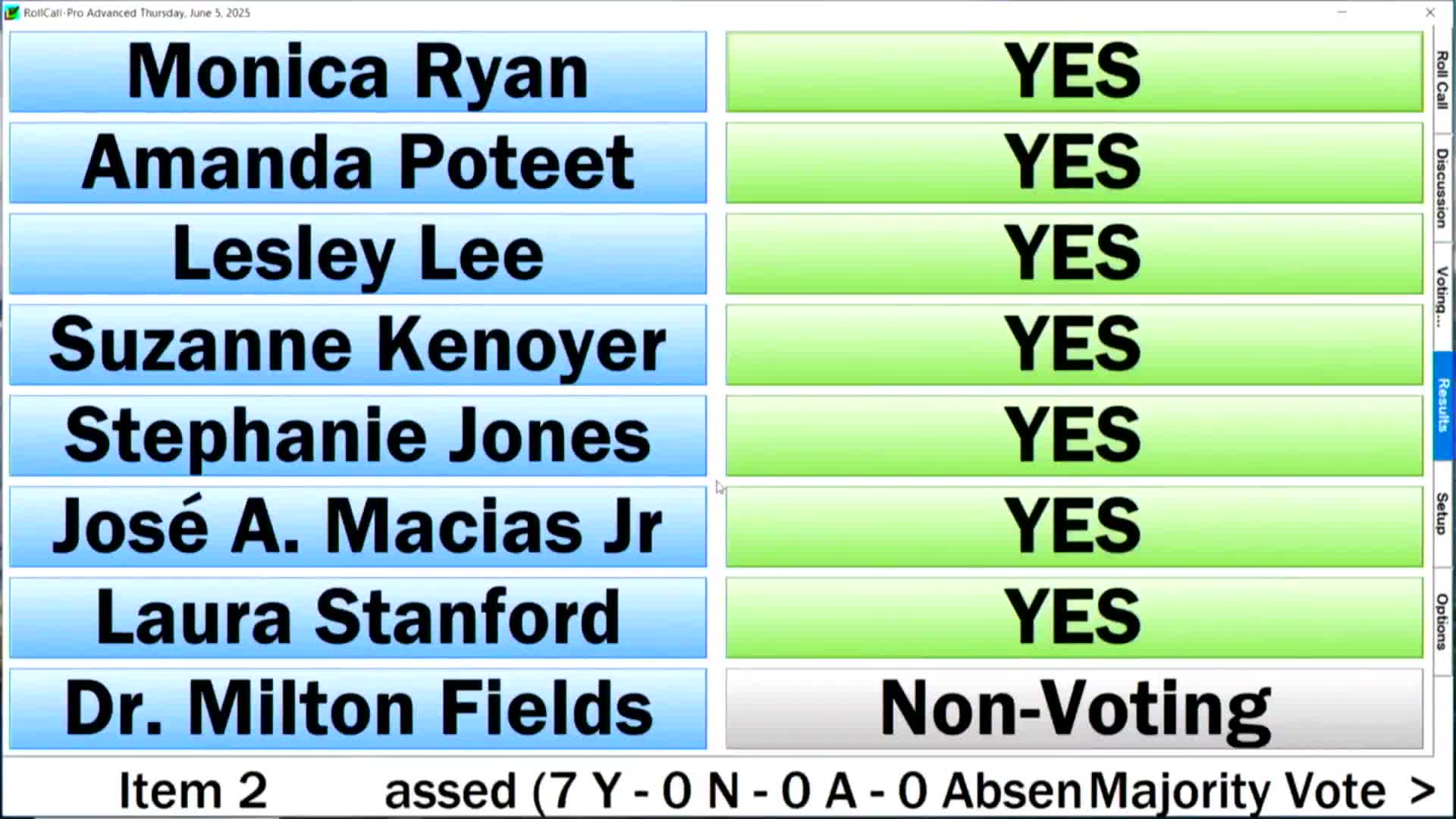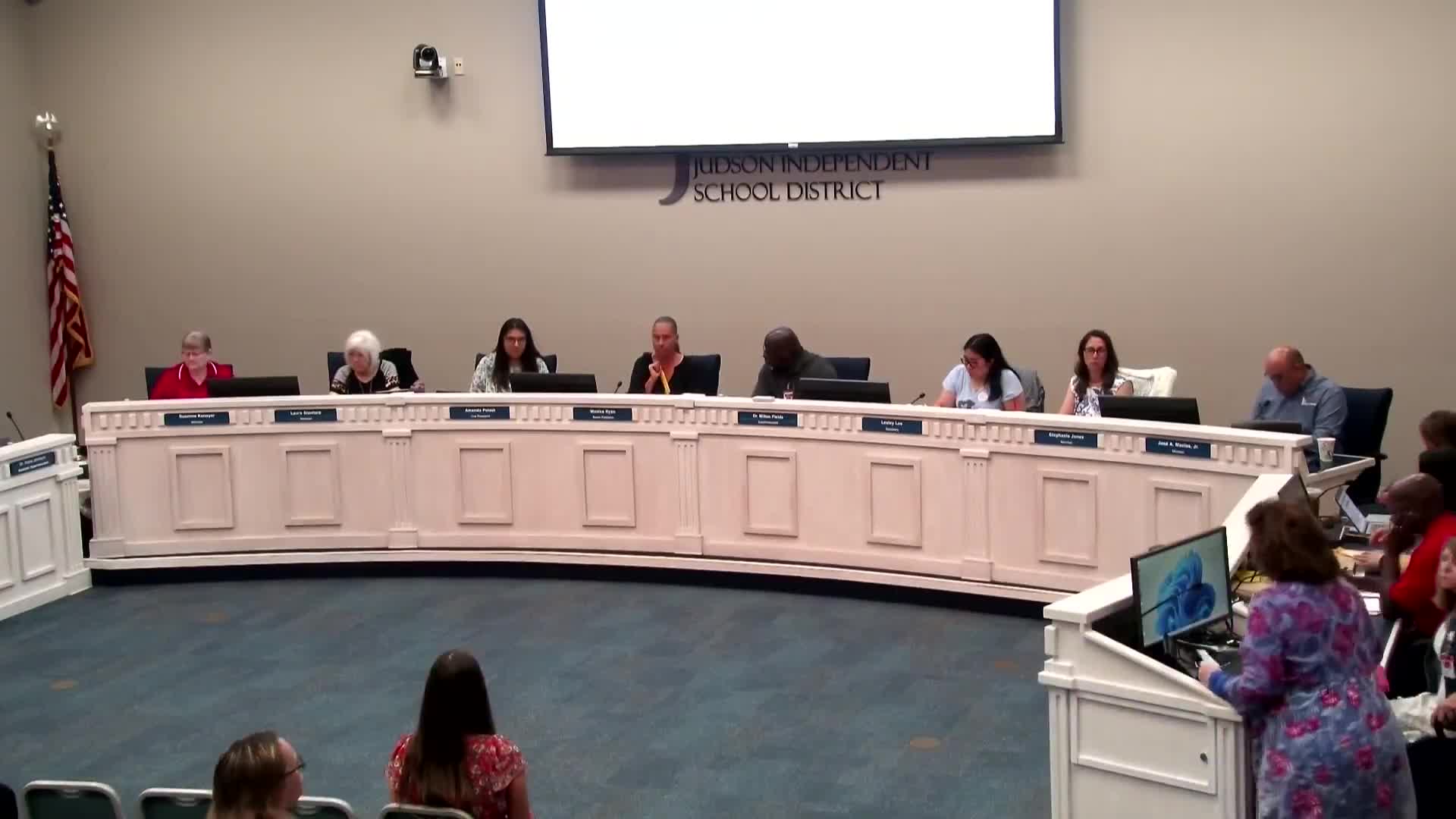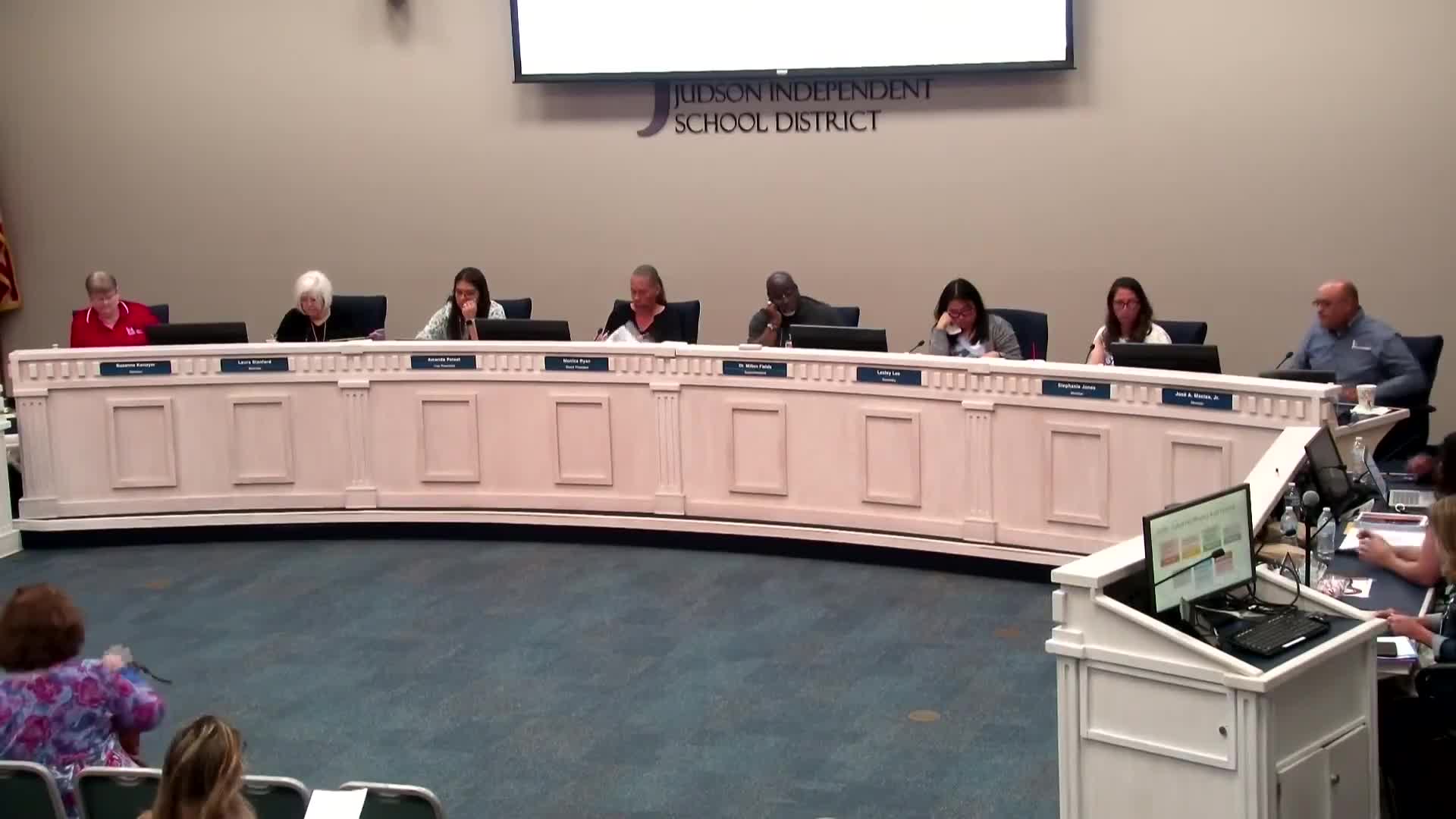Article not found
This article is no longer available. But don't worry—we've gathered other articles that discuss the same topic.

Board declines proposed counselor staffing cuts after trustees warn of student impact

Board authorizes evaluation, limited purchases to furnish Judson Middle School third floor

Teachers and school staff urge trustees to reject pay cuts, warn of morale and staffing impact

